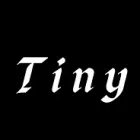Meta's Audiocraft: A Groundbreaking Framework for AI-Generated Audio and Music
- Aug 02, 2023

In a major technological stride, Meta has unveiled Audiocraft, a new framework designed to create high-quality, realistic audio and musical components from short text prompts. This novel invention was revealed earlier today and marked Meta's progressive ventures in the realm of audio generation, laying down a new benchmark in artificial intelligence (AI) applications.
Meta is no stranger to AI-driven music generation, having previously open-sourced an AI-powered music generator, known as MusicGen, in June. Despite previous achievements, Meta elaborated on its latest advancements, highlighting the remarkable improvements it brought about in the quality of AI-generated sounds. These enhancements are expected to yield incredibly life-like sound effects including, but not limited to, the sounds of dogs barking, car honking, and footsteps echoing on a wooden floor.
Audiocraft encapsulates three distinct generative AI models: MusicGen, AudioGen, and EnCodec. The framework enables these models to generate a catalog of sounds that vary vastly in their nature, thus adding to the auditory richness of the virtual and augmented reality experiences provided by Meta. While MusicGen has been part of Meta's offerings for some time, in this latest turn of events, Meta has decided to release the training code for the model.
The step toward open-sourcing the training code brings forth an opportunity for users to train the model on their unique data set of music. This could potentially lead to the creation of highly personalized and diversified sound effects and music. However, as exciting as this development might be, it simultaneously courts ethical and legal deliberations on account of MusicGen's learning approach.
AudioGen, another key component of the AudioCraft suite, is primarily engineered to generate ambient sounds and sound effects, as opposed to music and melodies. With a foundation laid on the diffusion procedure, much like several leading-edge image generators such as OpenAI’s DALL-E 2 and Google's Imagen and Stable Diffusion, AudioGen boasts sophisticated technological capacities. In the diffusion process, a model meticulously learns how to progressively eliminate noise from the initial data, composed purely of noise - be it audio or visuals, incrementally guiding it towards the desired prompt.
Meta candidly acknowledges in its whitepaper that AudioCraft holds potential for misuse, particularly in deep faking a person’s voice. Analogous to MusicGen, AudioGen's ability to generate music might stir similar ethical debates around the preservation of musical originality and potential copyright breaches. However, it's worth noting that like MusicGen, Meta does not impose major restrictions on the usage of AudioCraft, including its training code. While this open-door policy encourages creative freedom and technological exploration, it also brings along noteworthy implications, both beneficial and potentially detrimental.
Specifically, MusicGen takes cues from existing music to produce analogous effects, a fact that might not sit well with all generative AI users or artists. The framework’s ability to effectively replicate specific sound effects could potentially impede certain musical rights and credit concerns. Notwithstanding these challenges, Meta's Audiocraft underscores the tech giant's continued effort to push the envelope of AI in molding a more immersive and realistic virtual universe.








